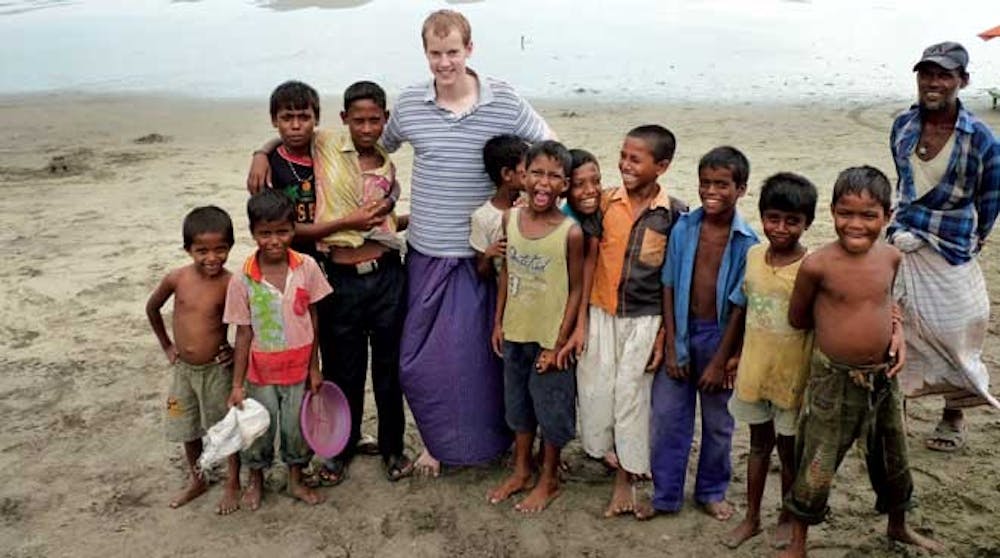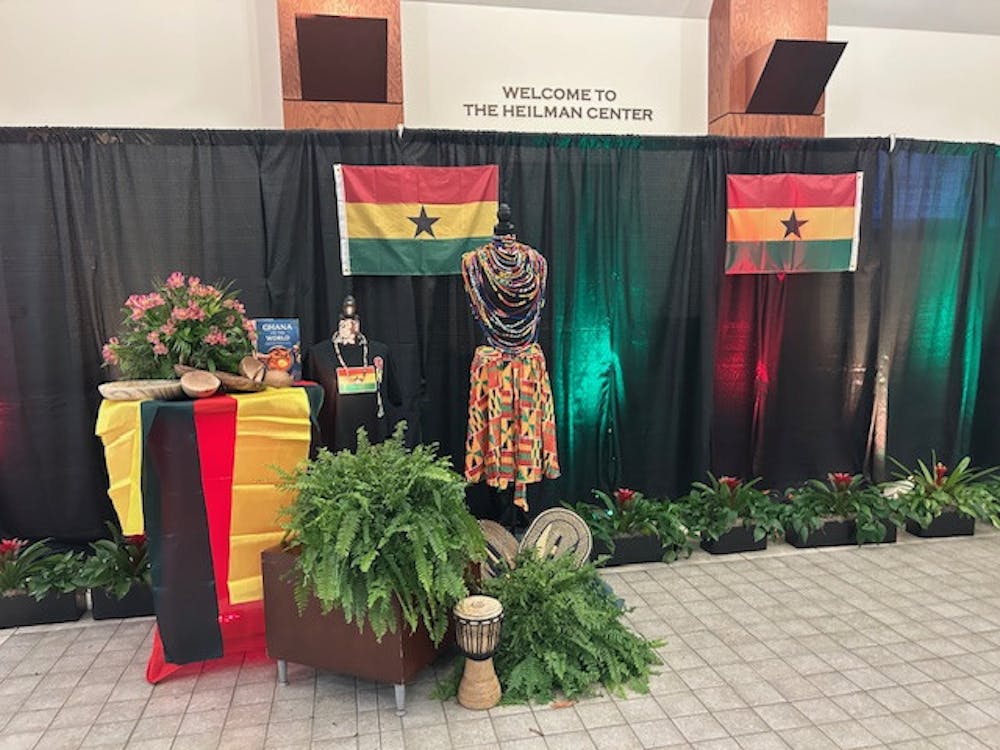Two University of Richmond students, Simrun Bal and Andrew Lyell, were awarded U.S. State Department Critical Language Scholarships and participated in abroad programs last summer.
Bal and Lyell were among 575 students to receive the scholarship out of nearly 5,200 applicants.
The U.S. State Department gives the scholarships to students who are interested in studying critical need languages, which are defined as languages that are important to topics such as national security and global health, Bal said.
Bal studied Punjabi in Punjab, India, and Lyell studied Bengali in Bangladesh. Their scholarships enabled them to live in the country for 10 weeks with all academic and living expenses funded by the program, Bal said.
In Punjab, Bal stayed with a host family and another student from the New College of Florida who was also in the program, she said. At the house she often spent time with the housekeeper's son, teaching him English.
"I really tried to speak Punjabi as much as I could in the house even though the family spoke broken English," she said. "I tried my best not to revert back to English because I wanted to immerse myself in the culture and language as best I could."
Bal's grandparents were from Punjab and her father speaks Punjabi, a regional language similar to Hindi, she said.
"I was able to learn the alphabet, some grammar and a range of vocabulary words/expressions by studying Punjabi on my own before the program," Bal said. "I was also able to ask him basic questions about the language, and I was able to understand (on) a basic level."
Bal, a junior biology major, said she visited India for the first time during winter break of her freshman year to visit her grandmother. She said her Indian heritage did not factor into her decision to go there. However, visiting India with her family did help her gain perspective on issues that she has since studied about India, such as public health, she said.
"Seeing those issues first-hand, seeing the challenges in accessing health care services in a rural setting, for instance, did inspire me to apply for the scholarship to improve my language skills so that one day I can contribute in some way, hopefully in regard to health," Bal said.
During the summer, Bal visited a rural village where she learned more about health disparities from a local physician, she said. Bal plans to enroll in medical school after her time at Richmond and she hopes to eventually make mission trips to India, she said. Understanding the language more fully will allow her to better understand challenges people face in India such as women's issues, sanitation and infrastructure, she said.
Each day Bal and her fellow students attended structured classes including literature, vocabulary, film and oral presentations from 9 a.m. to 1 p.m., Bal said. After classes, Bal participated in programs that offered personal tutors and local college students who acted as language partners, she said.
Enjoy what you're reading?
Signup for our newsletter
Although Bal and Lyell both received the scholarship, their time abroad was very different.
Lyell traveled to Bangladesh the past two summers through the critical language scholarship program, but his interest in Bangladesh stems from another trip that took him abroad, he said.
After graduating high school, Lyell took a year off and traveled to Japan on a mission trip with his church where he taught English. He was invited on a quick trip to Bangladesh to travel to a school supported by the Japanese school where he was volunteering, he said.
It was during this trip that Lyell said he had fallen in love with the people of Bangladesh. " I think God gave me a special love for these people," he said. "The first time I went to Bangladesh I did not like the food and I got sick for a couple of weeks, but still after that I desired to go back."
Lyell is a biochemistry major and Spanish minor; before he visited Bangladesh he couldn't have pointed it out on a map, he said. Lyell said he was now well aware of its location and described the country as half of the population of the U.S. squeezed into an area the size of Iowa.
A devout Christian, Lyell said he felt as if he had been blessed, but didn't deserve it. By learning the culture and language to the best of his ability, Lyell said he believed he could give back and help the local people who weren't as blessed as he was.
"The culture is hard sometimes, it really is," he said. "It's easy to get sick, the power goes out all of the time, there is inconsistent air conditioning; they don't have the things we have."
Lyell said the biggest thing he had learned about himself during his time abroad was learning to grow to love other people.
"I was constantly aware of how weak I am," he said. "I learned how easily I could turn off my heart. But I learned to rely on God and opened up to people. Instead of walking by a homeless person, I learned to talk to them or invite them to lunch."
Lyell has continued his passion for Bangladesh here at Richmond where he is doing an independent study with professor Sharon Scinicariello in the modern languages and cultures department, he said. Three times a week, Lyell meets with a Bangladeshi student for tutoring and then he assigns himself homework, he said.
For these assignments, Lyell calls his friends in Bangladesh and talks with them to practice and hone his skills, he said.
"I can sit in my room and call my friend who is sitting in the slums somewhere and we can just talk," he said. "It's pretty amazing what we can do with modern technology."
Hemonto Domenice is one of the Bangladeshi people Lyell remains in close contact with, he said. Domenice became very ill while Lyell was in Bangladesh, so they spent a lot of time together talking about life and God, he said. Domenice's good health eventually returned and he celebrated his 18th birthday last week, Lyell said.
For Bal and Lyell, their mission is to help others. They are both dedicated to pursuing careers as doctors, but ultimately they are pursuing careers that will allow them to make a difference.
Contact reporter Rachael Bilney at rachael.bilney@richmond.edu
Support independent student media
You can make a tax-deductible donation by clicking the button below, which takes you to our secure PayPal account. The page is set up to receive contributions in whatever amount you designate. We look forward to using the money we raise to further our mission of providing honest and accurate information to students, faculty, staff, alumni and others in the general public.
Donate Now



